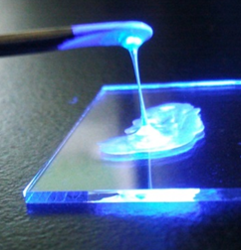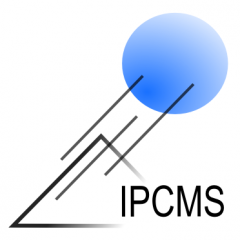
π-functional molecular liquids (FMLs) are a new generation of soft matter which exhibit a solvent-free nonvolatile liquid state at room temperature. FMLs display unique features such as i) easy and ecological friendly (solvent-free) processability, ii) unlimited deformability with self-healing character, iii) good contact to interfaces, iv) excellent pore-filling ability, v) isotropy of physical properties… FMLs is currently attracting much attention in optoelectronics, in particular, for the development of electroluminescent devices of extreme flexibility or else in microfluidic-based devices.
Practically, FMLs are obtained by functionalizing the p-functional molecular systems by bulky and flexible chains to prevent the crystallization and stabilize a room-temperature liquid state. So far, most FMLs are prepared using a functionalization with branched alkyl chains.
At IPCMS, we have developed an efficient synthetic procedure capable of conferring large π-conjugated systems with a liquid state at room temperature by the controlled grafting of short siloxane segments. We showed that the location and proportion of the siloxane chains enable the fine tuning of the p-molecular interactions in the liquid state. Doing so, we have successfully prepared liquid semiconductors and liquid emitters with outstanding properties in their neat liquid state. Our aim is now to develop specifically designed siloxane-based FMLs for the preparation of fluidic electroluminescent devices.
- Example

Collaborators :
- F. Mathevet (Sorbonne, Paris)
- J.C. Ribierre, Y. Tsuchiya & C. Adachi (Kyushu Univ. Fukuoka)
